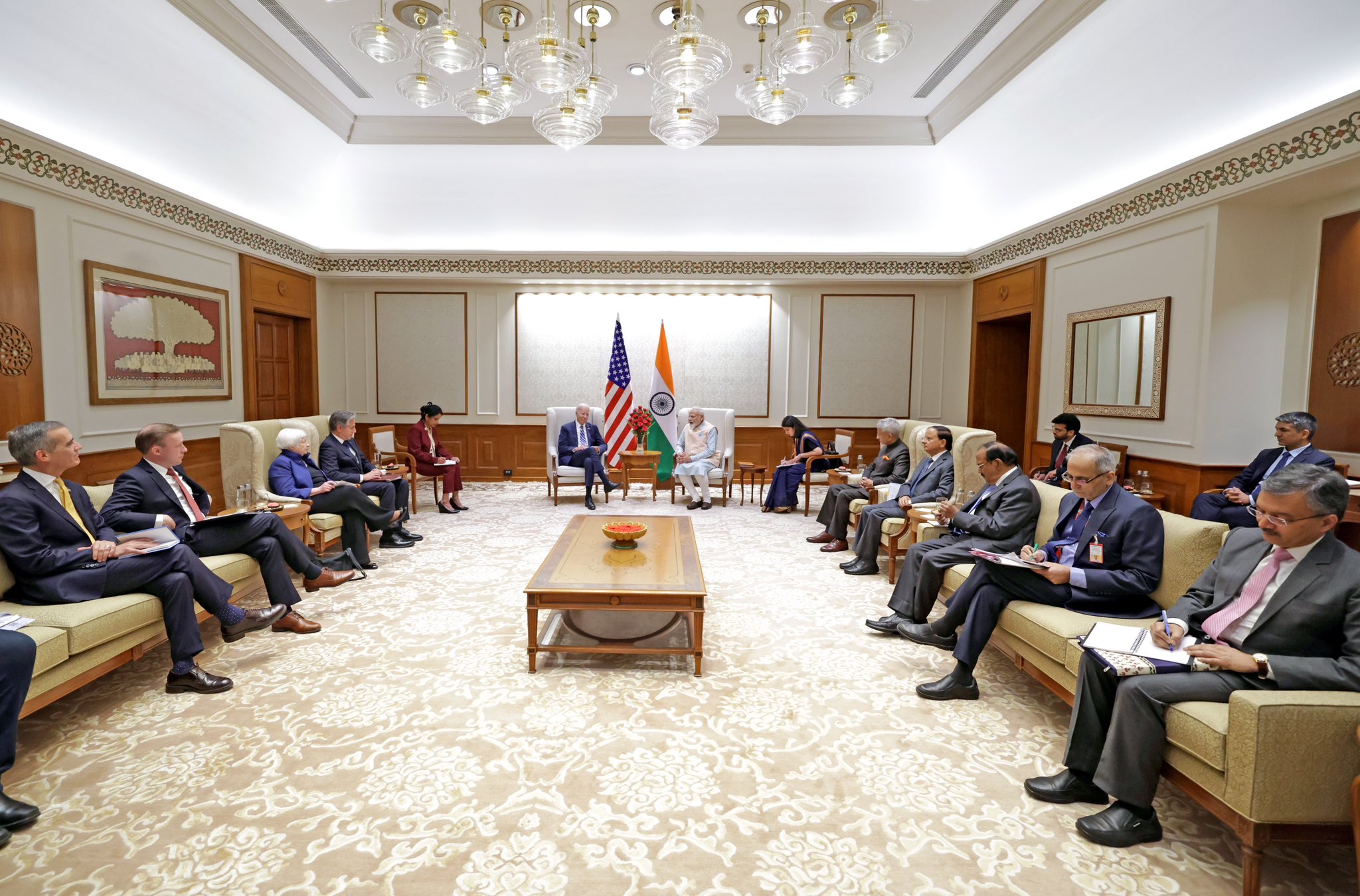
Joint Statement from India and the United States Strengthens Bilateral Ties
New Delhi, September 8, 2023 – In a significant development, Prime Minister Narendra Modi and United States President Joseph R. Biden, Jr. met today in India, reaffirming the strong and enduring partnership between the two nations. The leaders celebrated the progress made following Prime Minister Modi’s historic visit to Washington in June 2023.
During their meeting, the leaders emphasized the need to enhance the India-U.S. Strategic Partnership across various global domains, underpinned by trust and mutual understanding. They reiterated the shared values of freedom, democracy, human rights, inclusion, pluralism, and equal opportunities for all citizens, which continue to strengthen their relationship.
President Biden praised India’s G20 Presidency and expressed confidence in the G20 Leaders’ Summit in New Delhi, highlighting its potential to advance sustainable development, multilateral cooperation, and inclusive economic policies.
The Quad, aimed at fostering a free, open, inclusive, and resilient Indo-Pacific, remained a key focus. Prime Minister Modi invited President Biden to the upcoming Quad Leaders’ Summit in India in 2024. The U.S. decision to co-lead the Indo-Pacific Oceans Initiative Pillar on Trade Connectivity and Maritime Transport was also welcomed.
Both leaders stressed the importance of a reformed UN Security Council, with India as a permanent member. President Biden endorsed India’s candidature for the UNSC non-permanent seat in 2028-29.
Technology played a crucial role in deepening their strategic partnership. The India-U.S. Initiative on Critical and Emerging Technology (iCET) was commended, with a midterm review planned for September 2023.
Space cooperation reached new heights with discussions on a joint effort to the International Space Station in 2024. Both nations committed to planetary defense and increased coordination on asteroid detection and tracking.
The leaders reinforced the need for resilient global semiconductor supply chains, with major investments from U.S. companies in India.

In telecommunications, an MoU was signed between the Bharat 6G Alliance and Next G Alliance, aiming to deepen public-private cooperation. Joint Task Forces were established for collaboration in Open RAN and 5G/6G technologies.
Collaboration in the quantum domain, as well as in biotechnology and biomanufacturing innovations, was also a focal point.
Efforts to close the gender digital divide and expand the India-U.S. Major Defence Partnership, particularly in space and AI, were highlighted.
Significant agreements were reached in aerospace, ship repair, and defence innovation, demonstrating the commitment to advancing bilateral cooperation.
Nuclear energy, renewable energy technologies, and electric mobility also featured prominently in their discussions, emphasizing the importance of climate goals.
Trade disputes between the two nations were resolved, further strengthening trade relations.
Both leaders endorsed the “Innovation Handshake” agenda, aimed at boosting collaboration between start-ups, private equity, and venture capital firms in India and the United States.
Cooperation in cancer research and healthcare was acknowledged, with plans to launch the India-U.S. Cancer Dialogue and the U.S.-India Health Dialogue.
Lastly, the leaders renewed their commitment to enhance engagement between governments, industries, and academic institutions, with a shared vision for a prosperous future and a free, open, inclusive, and resilient Indo-Pacific.



